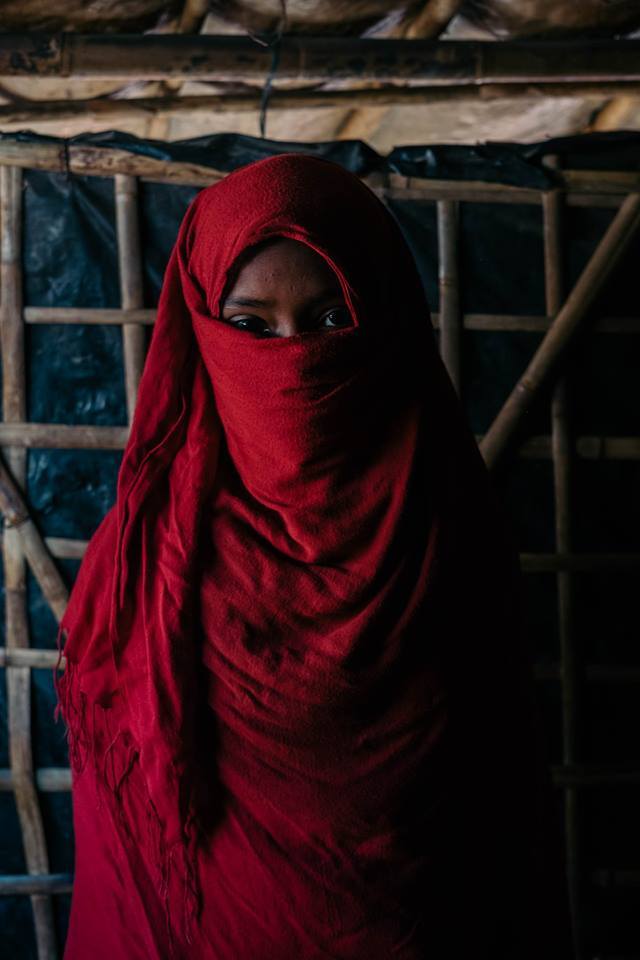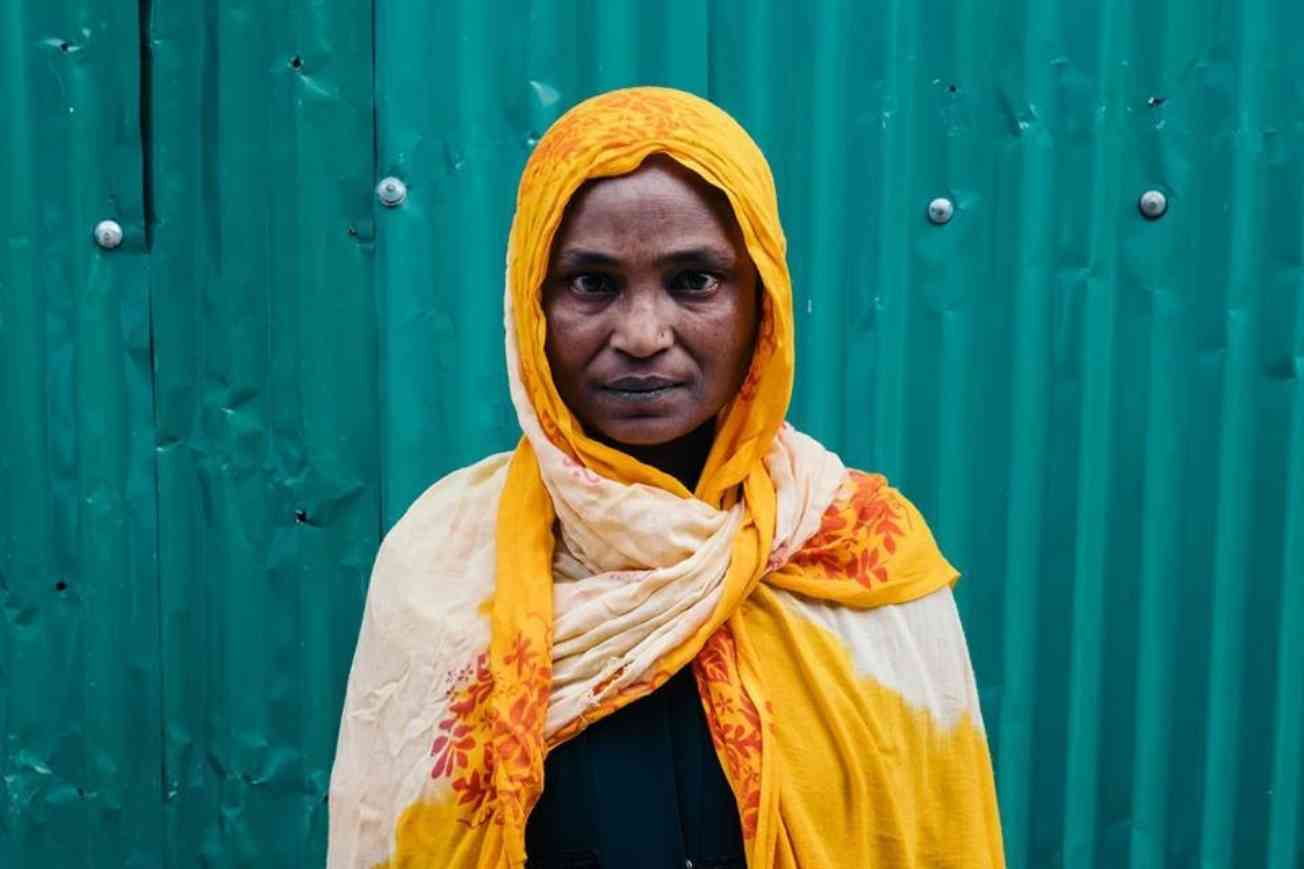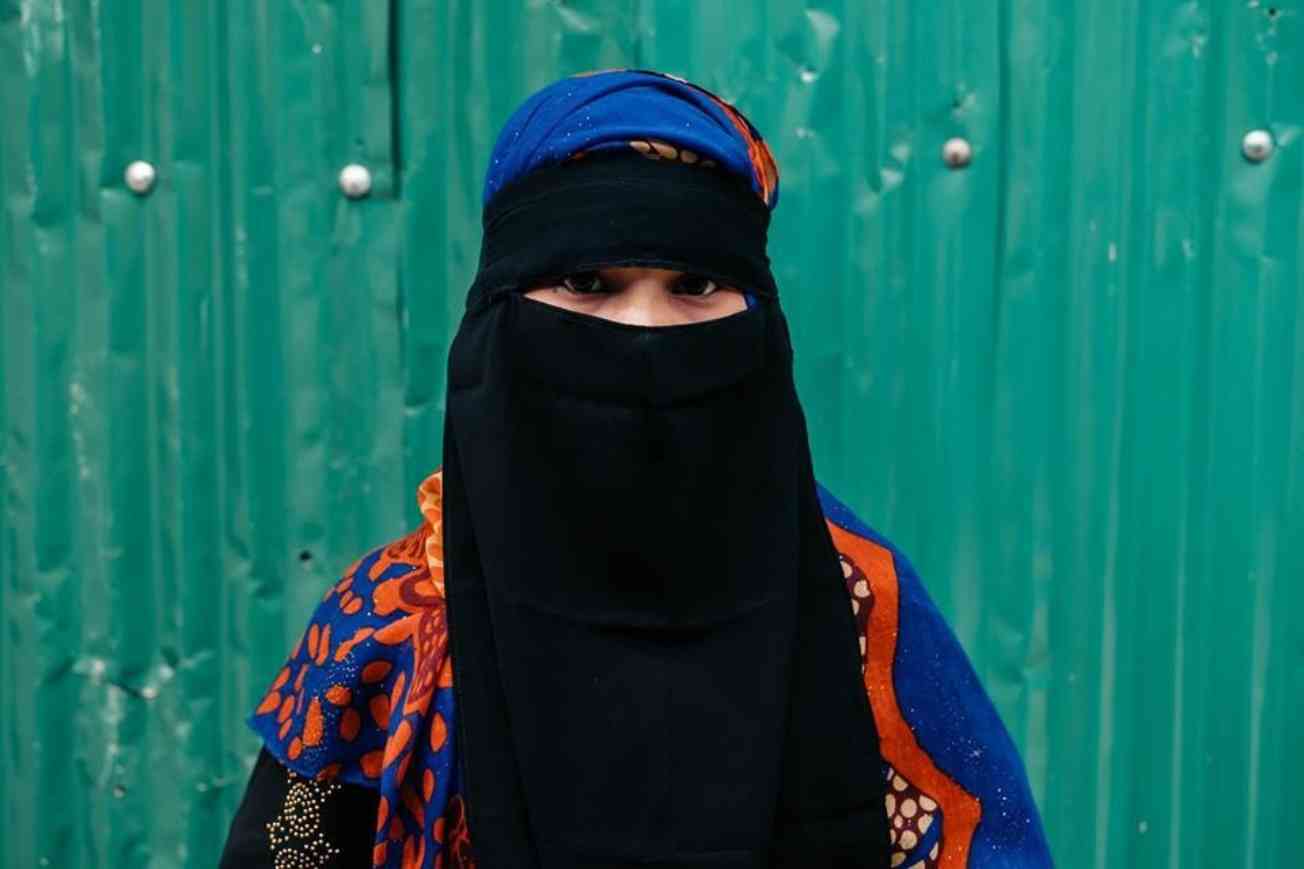International Women's Day 2019: The Rohingya women who want the world to hear their stories

Today, Friday 8 March, is International Women’s Day and an opportunity for us all to focus on the rights of women everywhere: their human rights.
In this, our final story direct from the ground in Cox’s Bazar refugee settlement - the largest in the world - we focus on the Rohingya women, and girls and show how their rights have not been realised: not at home, not in flight and not in the “safety” of the camps. We also show a never-before-seen short video of four of the resilient and powerful women whom we met in the camp.
In Cox’s Bazar refugee settlement in Bangladesh, women and girls make up more than half of the 725,000 Rohingya refugees who have escaped extreme violence in Myanmar. In their home country, the Myanmar military burned their villages to the ground, tied up women alongside their daughters, sisters, mothers, and repeatedly used their bodies as weapons of war, often in front of their families and local communities. If they weren’t then murdered, they were left for dead, broken, often pregnant and consequently shunned by their families.

The Human Rights Council reports that ‘[V]ictims were severely injured before and during rape, often marked by deep bites. They suffered serious injuries to reproductive organs, including from rape with knives and sticks. Many victims were killed or died from injuries.’
If they even make the treacherous journey to Cox’s Bazar refugee settlement, Bangladesh, they often refuse medical assistance from the one hospital in the settlement out of fear, because they were prevented from accessing healthcare services in Myanmar. Maternal mortality rates amongst the Rohingya are raging. Mentally and emotionally, the women show signs of deep trauma; mental-ill health is commonplace and often left untreated.
Whilst safe from the Myanmar military in the camps, Rohingya women remain at risk from their own people: of gender-based and sexual violence, discrimination, human trafficking and health problems.

Melissa Dalton-Bradford, Executive Director, Their Story is Our Story (TSOS) reports from Bangladesh:
“Just two days ago, in a dusty camp in the poorest corner of one of the poorest countries on earth, Rohingya women stood in line for an hour for the chance to look into a camera and to tell their stories. They stood silently, nobly, like guards or dignitaries in the shade of a barrack of HOPE Field Hospital for Women, while each took the opportunity to testify to the world. When I asked, through the translator, ‘What did the Myanmar soldiers do..?’ the whole atmosphere changed, and the women tumbled over one another, arms in the air, faces full of rage, voices strained, stamping their feet, acting out what they were saying: Butchery.
“When they finished, they came to me (I had tears on my face by now and I was shaking), and they embraced me.
“They thanked me - thanked us - for listening to their story and for taking it to the world.
“Camp staff and personnel who had been standing on the sidelines told me afterward that that was the first time they themselves had heard some of these women’s stories and that no one else and no other organisation was coming to listen to them, promising to amplify their stories to the world.”
Refugees are not the crisis. It’s the stories that we tell about them. Their Story is Our Story (TSOS) came to Bangladesh, because we believe that the Rohingya women and girls have the right to tell their own stories. We provide a platform - through social media, events, these blog posts - to help the wider public to understand that being forced to live the life of a refugee, like these Rohingya women, could happen to anyone. Most of us live the luck of the draw, with our most pressing concern of the day often being what to cook for dinner later, or when our favourite television show is on. Others do not have this luxury and it is our responsibility to do something about it. Take action. Share the stories of these powerful women and girls. Donate to Their Story is Our Story so that together, we can share more stories, open dialogue and help shape attitudes towards refugees for the better. We are not powerless. We can act.
HELP TODAY
Share refugee stories online and in life amongst your friends and colleagues to help challenge misconceptions and misunderstandings about refugees.
Donate to Their Story is Our Story (TSOS) so that we can continue sharing refugees’ personal stories.
Donate to Hope Foundation for Women and Children of Bangladesh so that Hope Field Hospital for Women can continue to provide a safe haven for women and children inside the Refugee Camps.
Get involved with HumaniTerra by donating funds or volunteering to work on the ground to help rebuild the care system in a sustainable way.
Donate to Unicef or Save the Children to help build temporary safe spaces for Rohingya children to go to school.
Author: Emma Nobes
Image credit: Christophe Mortier
Video credit: Christian Suhr
Official Statement on the Detention of Refugees and Ongoing Community Violence
With another death in Minnesota and continued violence toward individuals and groups standing up for their communities, we acknowledge the profound fear and uncertainty people are feeling--not just locally, but across the country.
On top of this, there are reports that refugees invited and admitted to our country through the U.S. Refugee Admission Program are now being detained, meaning that our new friends and neighbors feel that fear most acutely.
Refugees have already fled violence and persecution once. They came here legally, seeking safety. In moments like these, we reaffirm our commitment to building communities where refugees and immigrants can live without fear. Where they can go to work, send their children to school, and build lives of dignity and belonging.
We call for due process, accountability, and humanity in all immigration enforcement operations. We call upon our leaders to demand the demilitarization of our neighborhoods and cities. And we call on all of us to continue the work of welcoming and protecting those who have been forcibly displaced from their homes.